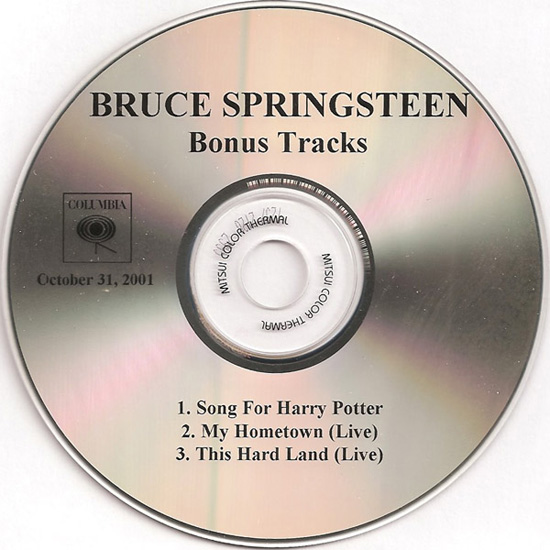This week in New York, Bruce Springsteen added a powerful call to action to his Broadway show:
We are seeing things right now on our American borders that are so shockingly and disgracefully inhumane and un-American that it is simply enraging. And we have heard people in high position in the American government blaspheme in the name of God and country that it is a moral thing to assault the children amongst us. May God save our souls.

Bruce Springsteen On Broadway Calls the Nation to Attention Over Trump's Inhumane Border Snatching (full audio below)
I never believed that people come to my shows, or rock shows to be told anything.
But I do believe that they come to be reminded of things. To be reminded of who they are, at their most joyous, at their deepest, when life feels full. It's a good place to get in touch with your heart and your spirit, to be amongst the crowd. And to be reminded of who we are and who we can be collectively. Music does those things pretty well sometimes, particularly these days when some reminding of who we are and who we can be isn't such a bad thing.
That weekend of the March for our Lives, we saw those young people in Washington, and citizens all around the world, remind us of what faith in America and real faith in American democracy looks and feels like. It was just encouraging to see all those people out on the street and all that righteous passion in the service of something good. And to see that passion was alive and well and still there at the center of the beating heart of our country.
It was a good day, and a necessary day because we are seeing things right now on our American borders that are so shockingly and disgracefully inhumane and un-American that it is simply enraging. And we have heard people in high position in the American government blaspheme in the name of God and country that it is a moral thing to assault the children amongst us. May God save our souls.
There's the beautiful quote by Dr. King that says, "the arc of the moral universe is long but it bends toward justice." Now, there have been many, many days of recent when you could certainly have an argument over that. But I've lived long enough to see that in action and to put some faith in it. But I've also lived long enough to know that arc doesn't bend on its own. It needs all of us leaning on it, nudging it in the right direction day after day. You gotta keep, keep leaning.
I think it's important to believe in those words, and to carry yourself, and to act accordingly. It's the only way that we keep faith and keep our sanity.
I've played this show 146 nights with basically the same setlist, but tonight calls for something different...
Men walking 'long the railroad tracks
Going someplace and there's no going back
Highway patrol choppers coming up over the ridge
Hot soup on a campfire under the bridge
Shelter line stretching 'round the corner
Welcome to the new world order
Families sleeping in their cars in the southwest
No home, no job, no peace, no rest
Well the highway is alive tonight
But nobody's kidding nobody about where it goes
I'm sitting down here in the campfire light
Searching for the ghost of Tom Joad
He pulls a prayer book out of his sleeping bag
Preacher lights up a butt and he takes a drag
Waiting for when the last shall be first and the first shall be last
In a cardboard box 'neath the underpass
You got a one-way ticket to the promised land
You got a hole in your belly and a gun in your hand
Sleeping on a pillow of solid rock
Bathing in the city aqueduct
And the highway is alive tonight
Where it's headed everybody knows
I'm sitting down here in the campfire light
Waiting on the ghost of Tom Joad
Tom said, "Mom, wherever there's a cop beating a guy
Wherever a hungry newborn baby cries
Where there's a fight against the blood and hatred in the air
Look for me, Mom, I'll be there
Where there's somebody fighting for a place to stand
Or a decent job or a helping hand
Wherever somebody's struggling to be free
Look in their eyes, Mom, you'll see me"
The highway is alive tonight
But nobody's kidding nobody about where it goes
I'm sitting down here in the campfire light
With the ghost of old Tom Joad
Springsteen on Broadway - June 19, 2018 - The Ghost Of Tom Joad from docinwestchester on Vimeo.

















